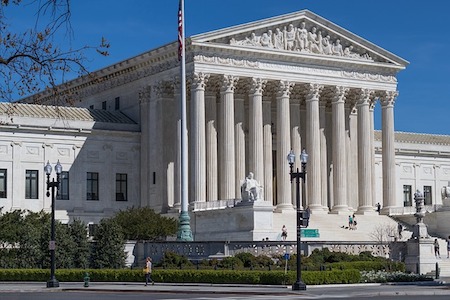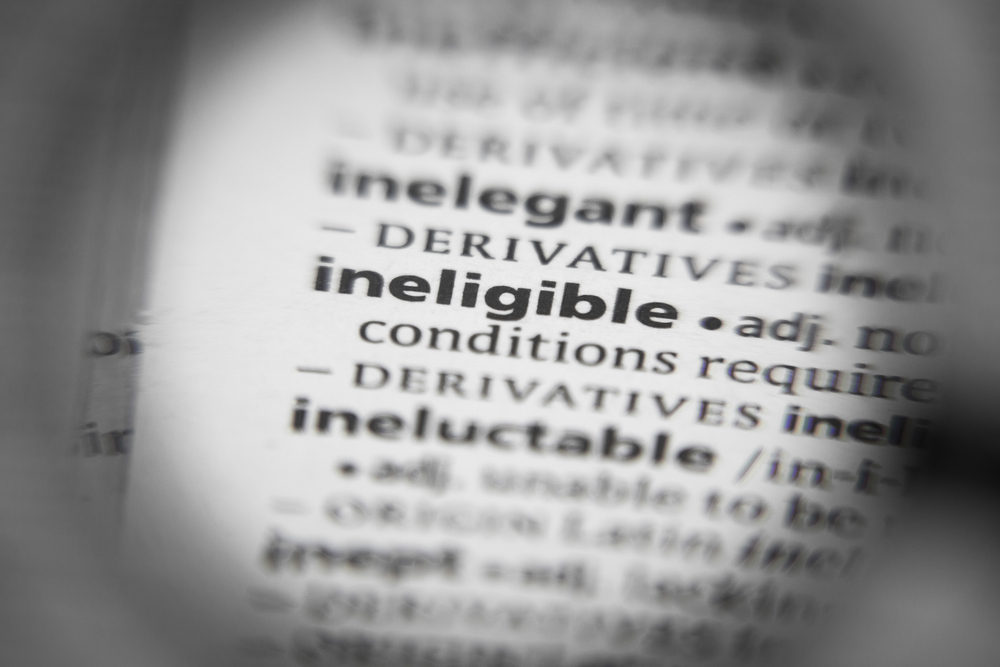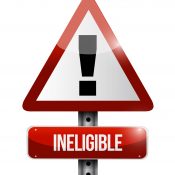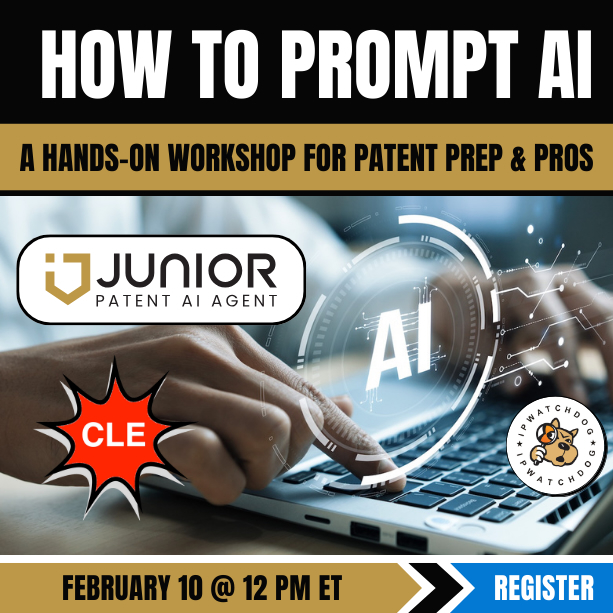 In recent weeks, Lake Forest, IL-based audio tech developer Advanced Audio Devices filed a petition for writ of certiorari seeking the U.S. Supreme Court to take up its appeal of decisions to invalidate its patents handed down by the Patent Trial and Appeal Board (PTAB). If granted, the case would ask the Supreme Court to decide the constitutionality of the PTAB under the Fifth Amendment’s Takings Clause, which was a grounds for arguing the PTAB’s constitutionality reserved by Justice Clarence Thomas’ opinion in Oil States v. Greene’s Energy Services.
In recent weeks, Lake Forest, IL-based audio tech developer Advanced Audio Devices filed a petition for writ of certiorari seeking the U.S. Supreme Court to take up its appeal of decisions to invalidate its patents handed down by the Patent Trial and Appeal Board (PTAB). If granted, the case would ask the Supreme Court to decide the constitutionality of the PTAB under the Fifth Amendment’s Takings Clause, which was a grounds for arguing the PTAB’s constitutionality reserved by Justice Clarence Thomas’ opinion in Oil States v. Greene’s Energy Services.
Advanced Audio Devices owns five U.S. patents which were invalidated in inter partes review (IPR) proceedings at the PTAB. Advanced Audio had appealed those decisions to the Federal Circuit but the appellate court issued a Rule 36 affirmance this May which upheld the PTAB decisions without issuing an opinion.
As Advanced Audio’s petition for writ of certiorari notes, all five patents were filed with the U.S. Patent and Trademark Office prior to the enactment of the America Invents Act (AIA), which established the PTAB. Prior to Congressional passage of the AIA, Advanced Audioe didn’t need much litigation of its patent rights to license its patents and achieve most of its revenue. After the AIA passed, Advanced Audio began having to again file suits against those who were practicing its patented technology without a license. The patents invalidated by the PTAB were asserted by Advanced Audio in cases against Amazon, HTC and Pantech Wireless all filed in the Northern District of Illinois. Those cases are stayed in district court pending the resolution of this case, which has created significant costs through attorney fees and significant loss of royalty revenue.
“By enacting and implementing the AIA, the Government deprived patent owners of their personal property,” Advanced Audio’s petition reads. “Was that a Fifth Amendment taking? And, if so, what should be done about it?” Such questions were left open by the Supreme Court’s ruling in Oil States, which Advanced Audio said was meticulously limited in an appropriate manner to reflect the fact that patents could still be considered private property for purposes of either the Due Process Clause or the Takings Clause. The implementation of IPRs through enactment of the AIA and the invalidation of patent claims in five different IPR proceedings constitutes a regulatory taking by a governmental agency, Advanced Audio argues.
The Supreme Court’s 2015 decision in Horne v. Department of Agriculture further affirms not only the unconstitutional nature of a regulatory taking of personal property but also the status of patents as personal property. In that case, the Supreme Court held that a marketing order enforced by the Department of Agriculture violated the Takings Clause by requiring raisin growers to set aside a portion of their crop for the federal government free of charge. The majority opinion penned by Chief Justice John Roberts cited to 1882’s James v. Campbell, specifically using language which states that a patent “confers upon the patentee an exclusive property in the patented invention which cannot be appropriated or used by the government itself, without just compensation, any more than it can appropriate or use without compensation land which has been patented to a private purchaser.”
By enacting the AIA, Advanced Audio argues that the federal government appropriated patents, the personal property of individuals, in a way that conflicts with the standards laid out by Horne and James. “Invalidation put [Advanced Audio]’s inventions into the public domain, where they previously were not,” the petition reads. “That the AIA lacks any ‘just compensation’ provision confirms that this Court should hold the USPTO’s actions void ab initio.”
Advanced Audio also cites to the Supreme Court’s 1978 decision in Penn Central Transportation Company v. New York City where the Court set out certain factors to determine whether a regulatory action constitutes an unconstitutional taking. These factors include the regulation’s economic impact, particularly any interference with investment-backed expectations, and the character of the governmental action. On the first Penn Central factor regarding economic impact, Advanced Audio notes that its pre-AIA licensing revenues have been exhausted in attempts to protect the validity of its patents. As to investment-backed expectations, Advanced Audio provides original empirical evidence to show that Article III courts have invalidated patents 24.3 percent of the time since 2008 while the PTAB, in its five years of existence, has invalidated patents 80 percent of the time. “When AAD sought its patent rights, no administrative or judicial proceeding existed (or was contemplated) that would easily destroy patent rights,” Advanced Audio writes. On the third factor, the intended outcome of the AIA was to permit patent claims to be used by the wider public, “permitting complete invasion by strangers of what were otherwise boundary lines reserved solely for the benefit of the patentee.”
Peter Keller, Manager and President of Advanced Audio Devices, offered the following statement on the petition for writ with the Supreme Court:
“This is a significant issue that affects not only our company but numerous other individual patent owners whose patents have been revoked under the AIA. Our patents represent significant financial investment, and we believe it’s a violation of the constitution under the Takings Clause to deprive us of our livelihood without compensation. We are hopeful the Supreme Court will provide the clarity on this important issue that we and others need.”

![[IPWatchdog Logo]](https://ipwatchdog.com/wp-content/themes/IPWatchdog%20-%202023/assets/images/temp/logo-small@2x.png)

![[Advertisement]](https://ipwatchdog.com/wp-content/uploads/2026/02/Junior-AI-Feb-10-2026-sidebar-CLE-700x500-1.jpg)
![[Advertisement]](https://ipwatchdog.com/wp-content/uploads/2026/02/Anaqua-Feb-12-2026-sidebar-700x500-1.jpg)
![[Advertisement]](https://ipwatchdog.com/wp-content/uploads/2026/02/Ankar-AI-Feb-17-2025-sidebar-700x500-1.jpg)
![[Advertisement]](https://ipwatchdog.com/wp-content/uploads/2025/12/LIVE-2026-sidebar-regular-price-700x500-1.jpg)







![[Advertisement]](https://ipwatchdog.com/wp-content/uploads/2021/12/WEBINAR-336-x-280-px.png)
![[Advertisement]](https://ipwatchdog.com/wp-content/uploads/2021/12/Ad-4-The-Invent-Patent-System™.png)







Join the Discussion
22 comments so far.
Anon
August 24, 2018 09:06 pmCivil asset forfeiture AND takings are permissible – but are controlled and certain aspects must be met.
Anon
August 24, 2018 08:58 pmMike,
If enough had agreed with the Thomas dicta, it would have moved from dicta to holding.
“They” (the Royal they – pun intended) were fine with leaving the (ineffectual) “olive branch.
Actually moving on that, well…
Mike
August 24, 2018 06:30 pmAnon, As always, thanks for your response and analysis. I typically scan these articles in hopes to find your insight in the comments, and always enjoy them when I read them.
Now, if “the players [of the Court] remain (purposefully) bound to their own personal convictions” and this fact is “what [you] call attention to”, then why did you only include the dicta from Thomas in your expressed analysis, when there are eight other members of the Court, two of which did not agree with the majority opinion in Oil States, and at least one in the majority who agreed with the issue that Oil States did not argue due process or takings and suggested that this be properly raised elsewhere (and even 7 signed their name to the fact that Oil States didn’t argue due process or takings and their ruling should be held narrowly). Moreover, for the Court to sua sponte decide on the matter, it seems that not all of them agreed on specifics, otherwise we might have very well seen this highest Court author such.
Sure, “there IS a reason to focus on WHY the Court will be denying cert”, but given the outcome of Oil States and what was expressed in the opinions, I simply don’t see your reason here as sufficient for a cert denial. I could be wrong. I hope I am not. But I’m not using hope in my analysis. I guess we’ll see what happens.
LazyCubicleMonkey
August 24, 2018 05:20 pmAnon,
Fair enough – regarding legal terms & Ars Technica. That still doesn’t address the other two points – the civil asset forfeiture issue in particular?
Anon
August 24, 2018 11:14 amMike,
I have read your post. Twice. You have some “general” merit, as I also have beseeched others to do more than merely throw aspersions, throw their hands up in the air, and “quit.”
With that aspect, I mayfind a sliver of agreement with you.
However…
I will distinguish this exchange and instead exhort you (and others) to first understand why it is that I post as I do – as a precursor to understanding just what it is that those of us who are pro-patent are to face.
On this note, I take exception to your attempted logic to turn what I provided into a call for “agnosticism.” You insert an untethered “hope” by suggesting that the Court is completely “unbound.” My point was NOT that they were so completely unbound. The players remain (purposefully) bound to their own personal convictions. This is in fact what I call attention to. Your attempted agnosticism ignores this critical factor.
Further, the “negativity” that you see and call attention to is not to be dismissed out of hand, as doing so removes the teaching lesson as to WHY that “negativity” may exist. There IS a reason to focus on WHY the Court will be denying cert (and likewise, if, as you and Ron – at least – hope for, the additional insights that may be gathered FOR a grant of cert). But to pretend that “everything is roses” when such is not the case “educates” with the wrong message. My post was NOT (and expressly so) what the Court should do. It was an appraisal of what will likely happen (no sugarcoating). In fact, I draw a sharp distinction (as I have often done – if you look at the larger body of my posts) with what SHOULD be done.
I think that your “Simply state what should be done, and provide reasons why.” is NOT enough. Such does not provide the proper level of umbrage that the Court has earned. Yes, stating what should be done and why IS important (don’t get me wrong, I am not saying that what you suggest should not be done – I AM saying that such is simply not sufficient).
Mike
August 24, 2018 04:18 amAnon, actually I think your position of the members of the Court might better leave you agnostic in this case.
If “we are well past ‘what should be done’ by the members of the Supreme Court”, and if “what should be done” in order for Thomas not to expose the Court includes the Court denying Cert, then one can also conclude that, given the Court’s incompetence as evidenced (and as expressed here) thus far, they might very well NOT do what makes sense to save face and would NOT deny Cert in this case. I mean, if they follow any sense of logic, they would deny Cert to overcome their previous shortcomings. But given their incompetence, do they even realize this? Or care?
“THIS is the highest Court in the land”, is it not, and, if “We have seen that they do as they please,” then what does Thomas have anything to worry about in accepting this case? You said that “IF the Court does grant cert – and (perhaps equally narrowly) decides that the result is different – but on a directly analogous fact pattern as exists in Oil States – where be the justice for Oil States?” But do you seriously think this is a concern for them, especially after you expressed regarding the members of the Court that they “do as they please” and might not even care about justice?
It is for these reasons, I think a better position might be one of agnosticism.
Moreover, I think that, rather than express pessimism, commentators who support inventor rights should post as many “correct things” that the Court and/or Congress and/or the USPTO should do — or what is expected of them by the inventor community — when commenting on articles, in addition to providing sound reasons and evidence in support of these expectations. I think it has been noted even by Iancu that this blog has become a voice for the inventor community, and perhaps it is even read by certain USPTO and Congressional parties seeking ideas. So let’s not influence the decision makers negatively by what we speak.
In this instance with the Supreme Court, we have no idea where the Court will go, and it seems that outside influence, no matter the validity of that influence, does indeed speak to some members of the Court, as seen in their “blind position” on some opinions contained in some amicus curiae briefs. So let’s keep positive and, rather than post a comment evidencing high prediction scores, let’s keep that to ourselves and instead focus on changing the narrative and educating others. Simply state what should be done, and provide reasons why. I know it’s tough to do, but keeping score on this blog (or others) doesn’t change the narrative and is self-serving. Let’s instead provide reason and educate our decision makers. I say this in all kindness, and am guilty of not doing so on many occasions. So this is a note to myself as well.
Ron Katznelson
August 23, 2018 02:53 pmAnon,
We are in general agreement. I expressed my hope and you expressed healthy skepticism, which I concede is warranted. This is particularly so given the shattering of my hopes prior to the Oil States decision for a cogent and well-reasoned Court analysis of the actual rights adjudicated in IPRs and that the Court would not resort to fictional mischaracterization of its prior decision in McCormick Harvesting as not being based on Constitutional grounds.
Anon
August 23, 2018 12:54 pmLCM,
Once again, I advise care with legal terms (especially if you insist on being informed with sources like Ars Technica).
The “government granted privilege” aspect is not an exact representation of the legal meaning of a Public Franchise right – which is still a form of property.
That notwithstanding, the Ars Technica article is a conglomeration of “truths, near truths, and hyperinflated opinion masquerading as truths.” Timothy Lee has not been shy about his anti-patent bias, and anything he writes is suspect – at best.
Anon
August 23, 2018 08:17 amRon,
Your reply is sound, and I find no fault in your thinking.
Except perhaps that you are “over-trusting” the notion that the Supreme Court is somehow limited to what is asked of them.
Recent experience simply dictates otherwise.
Yes, it may be rare for “a” court to come to some “justice” sua sponte, but such rarity is not at point here where for Thomas to vote for cert would expose that the Court could have (and should have) ruled differently on the Legal Question in Oil States (because of the facts). The distinction between facts and law is not lost on me. Quite the contrary, the ruling on law in Oil States was “wrong” for more than merely the facts present – and my point concerning the facts only highlights the fact that the facts dictate a different outcome (albeit on a different legal point). The point being that those facts were present and were in front of the Court. The “placebo” of offering dicta in a case where facts make that dicta into a different holding is the “conundrum.”
Perhaps I am merely a little more Skeptical, but my prediction stands on who makes up the Supreme Court and not what should be done.
We are well past “what should be done” by the members of the Supreme Court.
LazyCubicleMonkey
August 22, 2018 09:49 pmI thought the Supreme Court already ruled that patents aren’t property: https://arstechnica.com/tech-policy/2018/04/supreme-court-upholds-important-weapon-in-the-fight-against-bad-patents/
Regarding patent invalidation numbers post the AIA, are those numbers in context with the # of patents attempted to be invalidated? Prior, patents invalidated by the courts needed a defendant accused of infringement, while IPR doesn’t? Also, the fact that IPR proceedings are much cheaper than invalidating a patent in court, that could easily skew the numbers… so I’m not sure that the # of invalidated patents before & after AIA is a sound logical argument.
Assuming for a moment that patents are property, didn’t the SC rule that civil asset forfeiture is legal (as much as I hate that decision), part of the reason being that the named defendant in those cases being the property itself? And since IPR proceedings target the patent and not the patent owner, wouldn’t the same reasoning apply?
Ron Katznelson
August 22, 2018 05:43 pmAnon @ 8: “How does the Court “justify” an end result that they fully control (again, given that THEY have not constrained themselves to “rules” that may apply to lesser courts) – an end result that differs NOT AT ALL on the facts? Law as applied to similar facts needs to come to similar Ends.
You make a seemingly good point here – “Law as applied to similar facts needs to come to similar Ends.” But here, the Court was not asked to address the “particular facts” of Oil States – rather it was asked to address a particular legal question posed by Oil States – do IPRs violate Article III and the Seventh Amendment of the Constitution? The question raised by Advanced Audio Devices is different – it pertains only to the Fifth Amendment of the Constitution. The SCOTUS was never stopped from ruling that a statute is constitutional under one part of the Constitution only later to find it unconstitutional under another. Instances under which SCOTUS would sua sponte decide a case according to the law on questions not briefed by the parties are rare. In the Oil States decision, they actually invited such briefing.
Like Mike, I am hoping for Cert nonetheless.
Anon
August 22, 2018 01:36 pmMike,
Another area with an impact: attempted changes to voting rights (after voting rights are created).
Anon
August 22, 2018 01:32 pmMike,
In a more general sense, any law overturned by the Supreme Court for a Constitutional violation provides the mechanism (e.g., Tam in the trademark realm).
Yes, I recognize that a more on-point (property) case would be better, but alas, I do not have one at the ready.
Mike
August 22, 2018 01:09 pmAnon: Agreeing with you on most. Hoping for Cert nonetheless.
You said: “Mike @ 7, in regards to the AIA action and the imposition of the type of “catch” that those accepting “Grant” after the AIA must accept the property under the “condition,” and thus IPR must be accepted is built on a fallacious view that Congress may make ANY change at all to an established property right.
This is just not so.”
Is there any case law in support of this not being so? THAT is what all patent owners need to be talking about.
Anon
August 22, 2018 12:36 pmRon and Mike,
Thank you for the counterpoints.
I pause to consider your views, but conclude that the Court will NOT place itself in a quandary and will not grant cert.
The quandary as I see it is NOT alleviated just because the oral arguments discuss what parties may have not brought up. THIS is the highest Court in the land. We have seen that they do as they please, and they COULD HAVE sua sponte decided the case according to the law based purely ON the facts of the case that WERE presented.
In fact, given that the “idea” IS expressed during Oral arguments may be taken as the issue being “there” for the Supremes to decide upon (even if but only by way of the sua sponte path).
The Supreme Court may well have “reached Justice” on the facts – and SHOULD HAVE reached Justice ON those facts (of Oil States). And those facts WERE in front of the Court.
Otherwise, one (of Oil States) would be exposed to the fact that the Court has shared a “nanana, no soup for you” decision that FINALIZES what they can seek to address. The Oil States party has no further avenue to appeal to.
I “get” that the Court sought to “inoculate” themselves, by stating that the case was decided very narrowly.
I posit that such “scrivining” does not save the Court. If anything, they have only created a bigger Gordian Knot by providing dicta that decides the case (Oil States) differently for facts before the Court.
IF the Court does grant cert – and (perhaps equally narrowly) decides that the result is different – but on a directly analogous fact pattern as exists in Oil States – where be the justice for Oil States? How does the Court “justify” an end result that they fully control (again, given that THEY have not constrained themselves to “rules” that may apply to lesser courts) – an end result that differs NOT AT ALL on the facts? Law as applied to similar facts needs to come to similar Ends. IF the Law does not, then we are faced with yet another flavor of Void for Vagueness.
Separately, Mike @ 7, in regards to the AIA action and the imposition of the type of “catch” that those accepting “Grant” after the AIA must accept the property under the “condition,” and thus IPR must be accepted is built on a fallacious view that Congress may make ANY change at all to an established property right.
This is just not so.
Note that the AIA expressed no change whatsoever to the character of a granted patent as being a PRIVATE personal property right. This is a critical starting point (and a major reason why the Oil States decision itself is simply so wrong). Quite in fact, the reading that flows from your analysis shows that the complete absence of a possibility of “quiet title” and the presence of a (necessary) acceptance of such conditionality prevents this new law from meeting the Constitutional mandate of “securing.”
It is this Constitutional mandate of “securing” – tied to the basic Lockean nature that what is happening at grant is that an Inventor’s inchoate right is maturing into a recognizable LEGAL property right that is – and remains – key. The entire notion that a granted patent is some “Public” Franchise right necessarily invokes the notion that the Franchisor is the State. This is a plain and fundamental contradiction of the Lockean concept, as the State has NO part of the initial inchoate right (from which somehow, the State has drawn their “ownership authority” to impose the “Franchise” moniker.
No. Instead, the other Constitutional protections that inure to Private Personal Property fundamentally protect patents from changes to patent law, even by the branch of the government that has been sanctioned to write patent law. To properly make the fundamental change (as has been rendered with the “interpretation” of Oil States), Congress would have had to do far more.
Mike
August 22, 2018 10:19 amAnon might say (as seen from his previous comments) that because a decision wasn’t provided sua sponte regarding takings/due process, especially when Thomas had every ability to do so, then this Advanced Audio case is just a nothingburger.
But I’m with you Ron — not so fast. The Court actually needs a hearing on the matter, as Oil States did not argue on takings/due process, and Breyer did in fact suggest that Oil States didn’t properly raise it, and it should be raised and taken to the Court.
“[W]hat I’m thinking, quite seriously, is saying should we leave open, assuming I basically agree with you, but leave open [in our Oil States decision] the question of what happens if there has been huge investment? That, I think, is what was dividing -
what was worrying Brandeis in Crowell. I think that — that we don’t face it here in [Oil States], and it seems to me [the question of what happens if there has been huge investment] would be properly raised more likely under either a takings clause or the due process clause probably.”
– Justice Breyer, Oil States oral argument.
Given this statement, one can see Breyer at least voting for Cert.
Regarding his actual views on the matter, Breyer also says during the Oil states oral argument:
“[Y]ou have a statute that says you only get the private property if, in fact, you survive the provisions of the title, of which [IPR] is one [such provision].”
So, Breyer says you only get the private property if you survive the provisions of the title. So if an IPR is never instituted on a granted patent, does the patent holder ever “get the private property” in that instance?
Is this granted patent considered “surviving” leading up to the point until it becomes invalidated, and then, did the “surviving” ever occur for at least a period once it is determined to be invalid? Because if so, then just compensation must be provided during that period. If not, then no compensation.
It seems to me that because a reliance interest is created upon grant, that, immediately once a patent is granted, it inherits the attribute of personal property and is therefore subject to some form of just compensation upon a taking of the property, said compensation being considered for the duration it was considered having the attribute of personal property.
This is because the Government created a reliance interest upon grant. Otherwise, we need to redefine “grant”. That, or, move the entire IPR process to pre-grant stage, or even abolish it.
Because the AIA provided no provision for compensation, I’m with Advanced Audio on the suggestion to hold the USPTO’s actions void ab initio.
In short, the AIA really eff’ed up things with this post-grant examinational and adjudicational proceeding called IPR. No one knows what the words “grant”, “securing”, or “private property” really mean anymore.
Ron Katznelson
August 22, 2018 06:00 amAnon: “Prediction: Cert denied.” Not so fast…
The Oil States decision practically invited a petition that properly challenges IPRs on Fifth Amendment grounds. And you could hear a preview of that during oral argument, where even Justice Breyer had questioned IPRs’ validity under the Taking clause. Indeed, one cannot miss the text inserted in the Court’s decision, without which there would likely not have been 7 votes:
“We emphasize the narrowness of our holding. … we address only the precise constitutional challenges that Oil States raised here. Oil States does not challenge the retroactive application of inter partes review, even though that procedure was not in place when its patent issued. Nor has Oil States raised a due process challenge.” Oil States, 138 S. Ct. 1365, 1379 (2018).
With this backdrop, when the Court leaves the door wide open for Fifth Amendment challenges, what would happen to the Court’s credibility if it refuses to consider such a question after making clear that it was never called upon to decide this issue? If this case is not “appropriate” for addressing the Fifth Amendment challenge, which case would be? What fact pattern or claim would be more “appropriate” for the Court to take on the question?
If there is no answer to this question, then the only logical conclusion is that the Court will forever refuse to consider IPRs’ infirmity under the Fifth Amendment. Does anybody here have a theory under which such refusal could be sustained?
Anon
August 21, 2018 08:04 amBemused @3,
You have Thomas on the wrong side. No way he puts himself in “harms way” by granting cert to do what he could have done (should have done) in Oil States (which HAD the fact pattern for his dicta).
Mike @4,
The point was that cert will not be granted.
IF it is granted, then I would see who moved to do so before I venture a next guess. I would need to recalibrate.
As for Congress, the cert or lack thereof is not something that will provide impetus one way or another.
I have long pushed for Congress to rightfully reclaim that which the judicial branch has taken.
And will continue to do so.
I just do not see this particular item gaining traction or being a huge driver. Perhaps I could be off and this may be a straw that breaks the camel’s back though…
What I would want to see and what is likely to be seen though are miles apart. Sadly, Congress is infected with the larger two-party politics and the still larger problem of juristic persons having a “voice based on money” outsized influence (think Citizens United).
Mike
August 20, 2018 06:25 pm@Anon: Out of curiosity…
1. Can you express your prediction of what might happen in the Court in the event cert is *not* denied?
2. Can you express your prediction of what might happen via Congress, if anything, in the event cert is indeed denied? Just curious about Massie and Rohrabacher’s bills and possible future movement, either with those or subsequent pushes.
Thanks.
Bemused
August 20, 2018 04:38 pmAnon, I suspect that you’re correct (as much as it pains me to say that).
But just for fun, let’s take a head-count on who would agree with the petitioner here: Roberts, Gorsuch, Kavanaugh and Thomas.
Voting against: Ginsburg, Kagan, Breyer, Sotomayor and Alito.
Any chance of peeling off one vote from these five?
Jianqing Wu
August 20, 2018 10:59 amThe nine justices cannot get it, nothing will happen. They will do nothing. If they get it, they can use anything to change.
Why cannot inventors and patent owners win? There are hundreds of research articles, policy research reports, policy recommendations, etc., all in the names of experts, law professors, leading think-tanks….. The justice chambers are probably filled with junk-science patent masterpieces, and so are the chambers of the federal circuits. When none of the justices and judges know how to compare things, using statistics, and evaluate system performance, they just do whatever those patent-policy masterpieces tell them to do: killing patents. The media choose to tell only junk-science findings and do the worst part in destroying patents.
I can show that the U.S. patent system is quickly becoming one without inventors…. However, justices and judges count applications and patents. What is wrong? They fail to look into application owners, patent claims, or subject of inventions. What is where? If they understand how Russian created that strange technological landscape, they should see how the U.S. patent law will cripple its national technological future and destroy the foundation of national economy.
I will go over those patent-policy masterpieces slowly. I ask other inventors and patent owners to do the same. When lawmakers and judges cannot discern junk science in patent-policy masterpieces, nothing will change for better. I cannot get those experts to answer my critics, while justices and judges keep using their patent-policy masterpieces in making their decisions.
Anon
August 20, 2018 09:12 amPrediction: Cert denied.
Translation: did you really think the dicta from Thomas had any bite? Man alive, the facts of the Oil States case itself FIT that dicta.